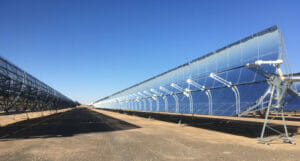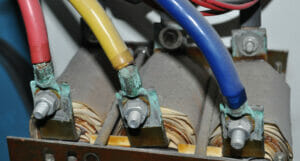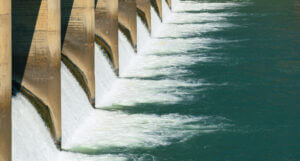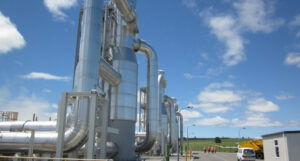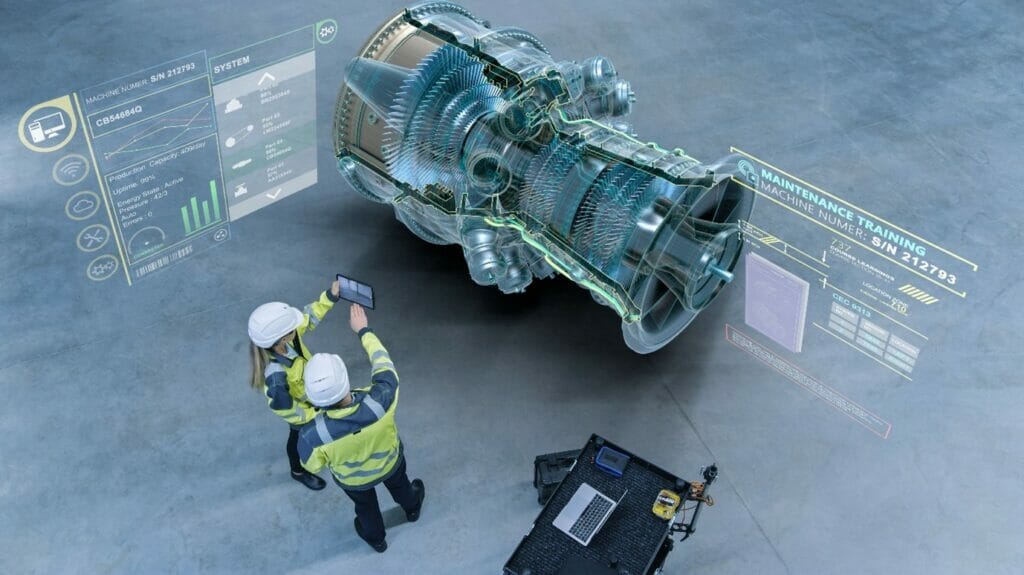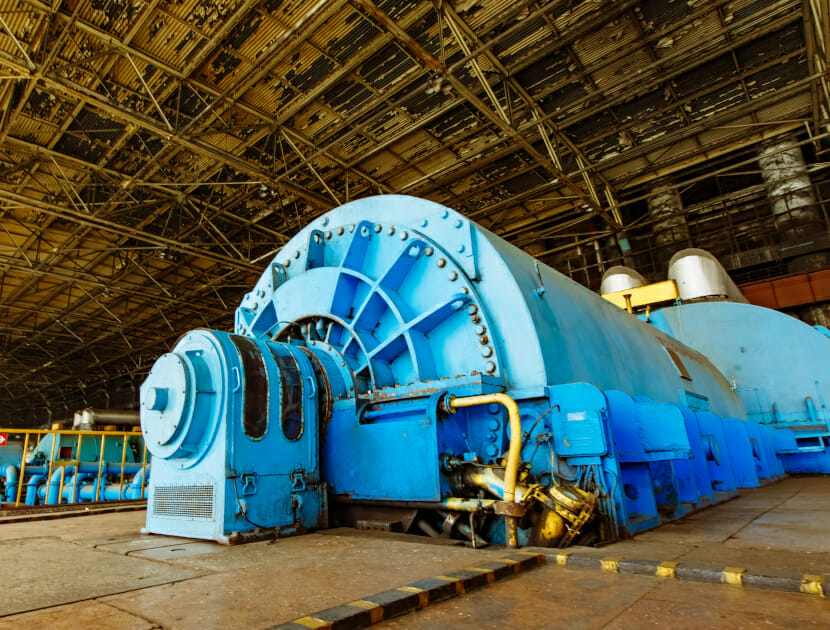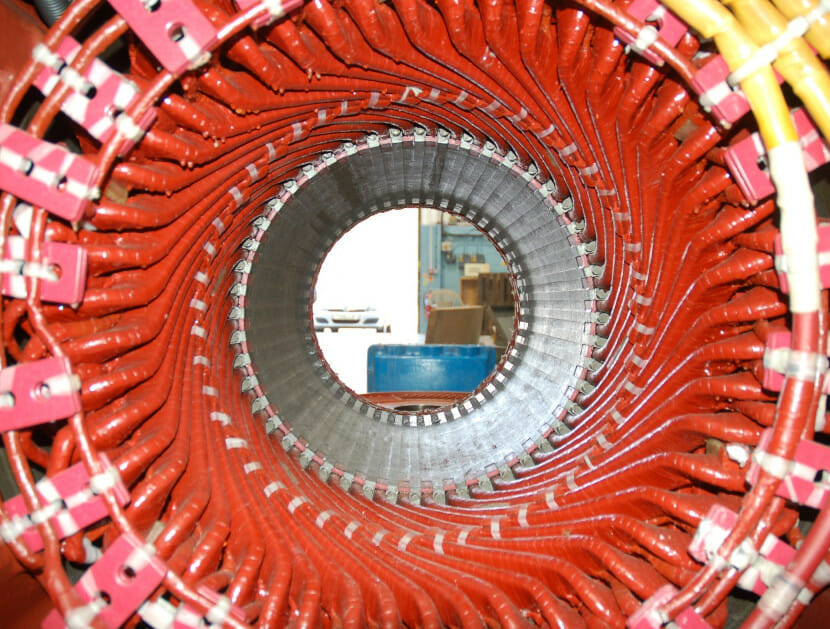Generators
Generators are at the heart of wind, hydro, geothermal, thermal and nuclear power stations, turning the mechanical energy of the process into electricity to be supplied around into the electricity grids.
The larger generators have a capacity in the region of 1.4 GW (gigawatts, or billion watts). The stators that sit inside the engine case can be hundreds of tons, and the rotors (the electromagnets inside the stator’s coil) can again be over 100 tons, spinning at 3000 RPM.
The impact of a loss of a generator can be catastrophic; the property damage is likely to be extensive, but the business interruption can be astronomical. The generator is a piece of equipment without any redundancy and, because of both its size and complexity, power companies will rarely have any spares. In many cases, damage to either a stator core or a rotor can lead to a downtime of over year, with property damage into the millions of pounds. Two years of downtime is also not unheard of.
Aside from the business interruption, a failure to a generator carries significant process safety concerns. Failures can result in hydrogen explosions, flashovers and mechanical parts being ejected from the machines at high speed.
In recent years, there has been an increase in generators being supplied to support the worlds grids, either as synchronous compensators (providing reactive power support) or as rotating stabilisers (inertia support), allowing them to connect more renewable energy as part of the transition to a lower carbon future.
Due to the complex nature of generators, a generator expert needs to have expertise in electrical equipment, mechanical engineering, chemistry, dielectrics, metallurgy, protection systems and best operation and maintenance practices.
WHY APPOINT A FORENSIC INVESTIGATOR?
Our team of experts have both the expertise and practical experience to impart the best practice guidance in this sector to reduce the risk of failure.
If a failure does occur, Hawkins can assist you in identifying the root cause of the issue and support you in returning the asset to service as quickly as possible.
- We have decades of experience working as operators of power plants or providing expert advice to operators, from new built, operation, life extension to end of life.
- Our experts sit on international committees and organisations and keep abreast of any historic or emerging issues.
- We can advise on international best practice for the operation and maintenance of generators.
- We can support with analysis of condition monitoring and test results.
- Our experts are well versed in all areas of generators and electrical rotating machines, from insulation systems, grid interaction, mechanical constraints, design and manufacture.
- We have experience of all large manufacturers and have worked on both new machines and older generators which can be almost 100 years old.
- We have a deep understanding of power plant operation and maintenance, from small wind and hydro generators, to gigawatt sized coal and nuclear machines.
- We support subrogation/recovery efforts.
- We help you to make decisions regarding where legal responsibilities and liabilities lie.
- We have provided court reports and given evidence in international court cases.
- We provide consultancy advice to prevent similar events.
- We can support the repair and restoration of generators, suggesting repairs and service providers.
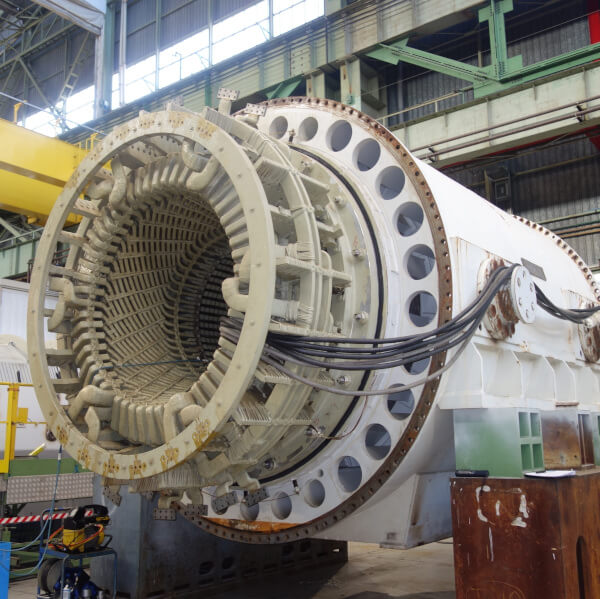
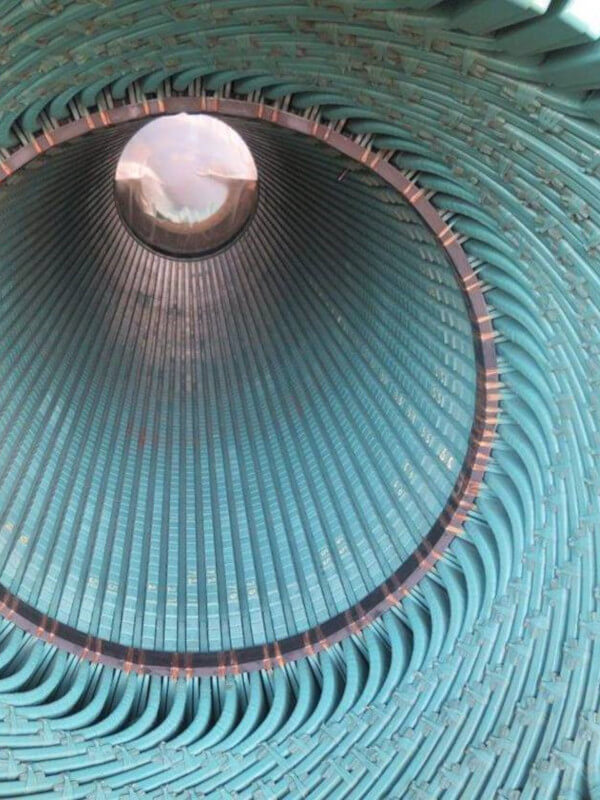

Examples of Typical cases
The list below provides a few examples of the types of issues that we can investigate:
- Operational failures
- Stator short circuit
- Rotor earth fault
- Generator contamination
- Brushgear fires/damage
- Protection system faults
- Generator mechanical failures/metallurgical failures
- Support to operators or new projects
- Life assessment
If you would like to discuss how we can assist you please fill out our enquiry form or call us for a free consultation.
HOW DOES HAWKINS INVESTIGATE GENERATOR FAILURES?
1
Consultation
On receipt of the enquiry, we discuss with the instructing party what happened, and when it happened and request a suite of data covering the operation and maintenance of the asset during its operating life. This collected data may include video coverage showing the operating conditions in the plant, before and during the event. We may also interview personnel present at the time of the event to get an insight into the timeline of events before, during and after the event.
2
Inspection
Following collection of all the data and completion of the consultation, Hawkins engineers will travel to the site or repair shop to inspect the asset. This will enable us to assess the extent of the damage, and identify the source of the failure. This step can be completed on-site, or may require samples to be removed and examined in one of our laboratories.
3
Reporting
On completion of the inspection, a detailed report will be issued summarising the work completed and the findings of the investigation. This can include advice on operational and inspection changes to implement to minimise future events if relevant.
SPEAK TO ONE OF OUR EXPERTS
Testimonial
“Thank you for your superb effort in this case.”
Rhys Phillips
“Many thanks for turning out today at such short notice and providing the benefit of your expertise and knowledge. It was evident the Client was extremely relieved that this matter was being investigated expeditiously.”
Chaz Winterton
“I just wanted to say thank you for all your help and the information you found was of real insight. Thank you again for all your help.”
Stewart Hargreaves
“I just wanted to say thank you for all of your hard work preparing the Hawkins report. Please pass on my thanks to the rest of the team. We really appreciate the hours you have all put in and I know the client is pleased with your work.”
Philippa Jones
“I have recently needed structural engineering opinion on one matter and geotechnical engineering opinion on another. I experienced the usual difficulties with traditional providers of those services – excessive cost, inability to get on site quickly etc etc. When turning to Hawkins the contrast was clear – economical pricing, fantastic turnaround times, and really helpful reports that focussed on my needs without me needing to spend ages spelling it all out.”
Hawkins client
Related areas of expertise
Power & Energy
Hawkins' power experts have experience of forensically investigating losses worldwide on a wide range of power generation equipment from traditional thermal and nuclear power plants through to wind, hydro and solar generation as well as emerging technologies such as battery and flywheel installations.
Electrical Engineering
With the prevalence of electrical and electronic devices in the modern world there is considerable scope for failures to occur. These can range from the failure of a single electronic component to failure of multi-megawatt power plants.
Hydro Power
Hydro power generation was the first green renewable energy and battery storage facility. Hawkins forensic investigators have completed numerous investigation into hydro power plant failures.
Geothermal
Geothermal power systems rely on the use of steam/hot water generated by the heat within the Earth’s crust and as such, the working media is significantly more aggressive than conventional steam systems. This results in more issues with corrosion and scale formation which affects the availability and utilisation of the power generation asset or heat exchanger unit.
Related Insights
Lorem ipsum dolor sit amet, consectetur adipiscing elit. Ut elit tellus, luctus nec ullamcorper mattis, pulvinar dapibus leo.


